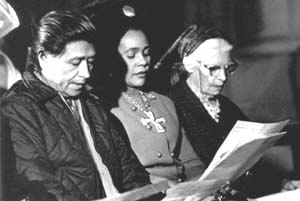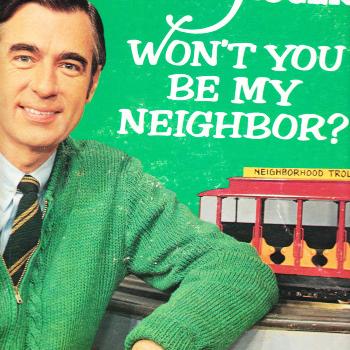• “US evangelicals headed for a showdown over gender roles,” writes Washington Post religion editor Michelle Boorstein in a piece that reads more like a sketch or outline than an actual article. She cites l’affaire Driscoll and fundie-homeschool maven Michael Farris’ CYA attempt to distance himself from predatory “patriarchy” gurus as data points.
“There are complicated reasons for both of these events,” Boorstein writes, “but what’s notable is that they come at a time when tension is soaring among evangelicals over just what it means to say God gave men and women different roles.”
As an exercise, I invite you to identify any time since the 1850s during which tension was not “soaring among evangelicals over just what it means to say God gave men and women different roles.”
• The Economist has apologized — or, I suppose, apologised — for calling for a more balanced view of American slavery. No, not back in the 19th century — earlier this week, when the magazine published a review criticizing Ed Baptist’s The Half Has Not Been Told: Slavery and the Making of American Capitalism, in which the magazine opined: “Almost all the blacks in his book are victims, almost all the whites villains. This is not history; it is advocacy.”
In its apology, The Economist admits that, yeah, actually, that was the thing about slavery. Black people were victims and white people were, in undeniable fact, villains. (Yes, but not all whi– … oh, shut up.)
• The Velveteen Rabbi: “find teachers of teshuvah wherever you can,” even on BBC America.

• “‘Social Justice Warriors’ is a term used often by these sort of people, and it’s a term whose pejorative use perplexes me, because aside from the source of its invention, it sounds like a really badass thing to be. I’d much rather label myself a Social Justice Warrior than a warrior for … whatever it is that these people are warriors for.”
Yes. I share Andrew Todd’s bewilderment at the way virtues are being repurposed as sneering pejoratives. “The federal court decisions thus far exemplify a pageant of empathy,” wrote U.S. District Court Judge Martin Feldman in upholding Louisiana’s same-sex marriage ban. For Feldman, this is self-evidently a bad thing — because, I guess, he thinks empathy is silly and shameful.
That’s so deliriously weird — so perversely backwards — that one can’t be sure whether or not to use the traditional title of “the Hon. Martin Feldman” for this judge. After all, if the guy thinks empathy should be mocked, then we have to assume he’d be offended if we accused him of being “honorable.”
If you’re against social justice and empathy, then what exactly are you for?
• This is a perfectly cromulent list.
• An insightful aside from Leo P. Ribuffo’s essay on religion and American foreign policy:
Scholars should beware of the claim, first popularized by Jerry Falwell in the late 1970s, that fundamentalists and evangelicals shunned politics after World War II until liberal and radical excesses in the “sixties” made them do it. Probably most of these theological conservatives did believe in the “fifties” that fierce anti-Communism, denunciations of short skirts, and acquiescence in or enthusiasm for white supremacy were moral rather than political positions. There is no good reason for scholars to accept this dichotomy in retrospect.












